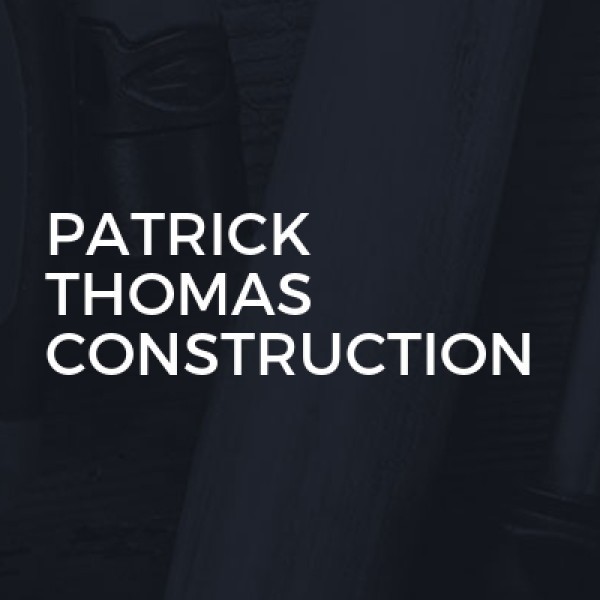Extension Builders in Tring
Homes & Gardens Building & Design Ltd stands as a beacon of excellence in the construction and renovation indust... read more »
Welcome to The Likeable Craftsmen, your go-to experts for all things home improvement in Potters Bar and across Hertfordshire,... read more »
TY Home Renovations Ltd is your go-to expert for all things home improvement in Roe Green and throughou... read more »
Welcome to 10 Ten Construction Ltd, your go-to experts for all building needs in Borehamwood and across Hertfordshire. Specialising in Bu... read more »
Welcome to Patrick Thomas Construction, your premier choice for all building and renovation n... read more »
J J Kelly & Sons Ltd is a distinguished family-run business nestled in the vibrant community of Round Greenread more »
Welcome to Belmont Projects Ltd, your premier choice for builders and construction services in High Town and throughout Bedfordshire. Spe... read more »
BGS Construction Services Ltd is a premier construction company based in Bletchley, proudly serving the... read more »
Team Build Ltd, proudly based in Brickendon, is your premier choice for top-tier construction services across Hertfordsh... read more »
Welcome to LBH Building And Property Services, your trusted partner for all your building needs in Welwyn Garden City and the wider Hertf... read more »
Welcome to REY Property Solutions LTD, your trusted partner in construction and renovation services in Waterdale, Hertfordshire. As a lea... read more »
Coleman Property & Development Limited, nestled in the vibrant community of South Hatfield, is your go-to choice for all... read more »
Prime Build Herts Ltd: Premier Builders and Contractors in Hunsdon, Hertfordshire
Welcome to Prime Build Herts L... read more »
Welcome to Blueprint Construction Ltd, your go-to experts for all building needs in Markyate and throughout Hertfordshire. As a leading c... read more »
Welcome to ARJD brickwork Ltd your trusted tradespeople in Biscot, offering a wide range of services across Bedfordshire. Whether you're... read more »
Welcome to Gikservices Ltd, your premier choice for all building and renovation needs in Leagrave and across Bedfordshire. As a leading p... read more »
Welcome to MY CRAFT BUILDING SOLUTIONS, your trusted partner for all your construction needs... read more »
David Hurst: Premier Builders in Caddington, Bedfordshire
Welcome to David Hurst, your go-to builders in Cadding... read more »
Welcome to Mr Hardy's Building & Maintenance LTD, your trusted partner for all building and renovation needs in South Oxhey and across He... read more »
Siri Bespoke Garden Rooms Ltd is a premier tradespeople service based in Cupid Green, offering an extensive range of ser... read more »
Search Extension Builders in places nearby
Understanding the Role of Extension Builders in Tring
Tring, a charming market town nestled in the heart of Hertfordshire, is known for its picturesque landscapes and historic architecture. As families grow and lifestyles change, many homeowners in Tring are opting to extend their homes rather than move. This is where extension builders in Tring come into play, offering expertise and craftsmanship to transform living spaces.
The Importance of Home Extensions
Home extensions are a fantastic way to add value and space to your property. Whether it's a new kitchen, an extra bedroom, or a sunlit conservatory, extensions can significantly enhance your living experience. In Tring, where property prices are on the rise, extending your home can be a cost-effective alternative to relocating.
Benefits of Home Extensions
- Increased Property Value: A well-executed extension can boost your home's market value.
- Personalised Space: Tailor your home to meet your specific needs and preferences.
- Cost Efficiency: Avoid the expenses and stress associated with moving house.
- Enhanced Aesthetics: Modernise your home with contemporary designs and features.
Choosing the Right Extension Builders in Tring
Selecting the right builder is crucial for the success of your project. With numerous extension builders in Tring, it's essential to consider several factors to ensure you choose a reputable and skilled professional.
Key Considerations
- Experience and Expertise: Look for builders with a proven track record in home extensions.
- Portfolio and References: Review past projects and speak to previous clients.
- Accreditations: Ensure the builder is registered with relevant industry bodies.
- Transparent Pricing: Obtain detailed quotes and compare them carefully.
Planning Your Home Extension
Before breaking ground, thorough planning is essential. This involves understanding your needs, setting a budget, and obtaining necessary permissions. Extension builders in Tring can guide you through this process, ensuring a smooth and successful project.
Steps to Successful Planning
- Define Your Goals: Determine what you want to achieve with your extension.
- Set a Budget: Consider all costs, including materials, labour, and permits.
- Design and Layout: Work with architects to create a functional and aesthetic design.
- Obtain Permissions: Secure planning permission and adhere to building regulations.
Types of Home Extensions
There are various types of home extensions to consider, each offering unique benefits. The choice depends on your specific needs, budget, and the existing structure of your home.
Popular Extension Types
| Type | Description |
|---|---|
| Single-Storey Extension | Ideal for expanding ground floor space, such as kitchens or living rooms. |
| Double-Storey Extension | Provides additional space on both ground and first floors, often used for bedrooms and bathrooms. |
| Wrap-Around Extension | Combines side and rear extensions for maximum space enhancement. |
| Conservatory | A glass extension that brings in natural light, perfect for sunrooms or dining areas. |
Materials and Design Considerations
The choice of materials and design can significantly impact the outcome of your extension. Extension builders in Tring can offer valuable insights into the best materials and design practices to suit your home and budget.
Material Options
- Brick and Block: Traditional and durable, ideal for matching existing structures.
- Timber Frame: Offers a natural aesthetic and is often quicker to construct.
- Glass: Provides a modern look and maximises natural light.
- Steel: Strong and versatile, suitable for contemporary designs.
Budgeting for Your Extension
Budgeting is a critical aspect of any home extension project. Understanding the costs involved and planning accordingly can prevent financial strain and ensure the project stays on track.
Cost Factors
- Size and Complexity: Larger and more complex projects will naturally cost more.
- Materials: The choice of materials can significantly affect the budget.
- Labour: Skilled labour is essential, and costs can vary based on expertise.
- Permits and Fees: Include costs for planning permissions and inspections.
Legal and Regulatory Requirements
Adhering to legal and regulatory requirements is crucial when undertaking a home extension. Extension builders in Tring are familiar with local regulations and can help navigate the necessary paperwork and approvals.
Key Regulations
- Planning Permission: Required for significant changes to your property.
- Building Regulations: Ensure safety and structural integrity.
- Party Wall Agreements: Necessary if the extension affects shared walls.
- Environmental Considerations: Compliance with energy efficiency standards.
Working with Architects and Designers
Collaborating with architects and designers can enhance the success of your extension project. These professionals bring creativity and technical expertise, ensuring your vision is realised effectively.
Benefits of Professional Design
- Optimised Space: Efficient use of space to meet your needs.
- Innovative Solutions: Creative ideas to overcome design challenges.
- Enhanced Aesthetics: Professional design can elevate the look of your home.
- Technical Expertise: Ensures compliance with structural and safety standards.
Project Management and Timelines
Effective project management is key to the timely and successful completion of your home extension. Extension builders in Tring often provide project management services to coordinate various aspects of the build.
Managing Your Project
- Set Clear Objectives: Define what you want to achieve and communicate this to your builder.
- Establish a Timeline: Work with your builder to set realistic deadlines.
- Regular Updates: Stay informed about progress and any potential issues.
- Quality Control: Ensure work meets your standards and specifications.
Dealing with Challenges and Solutions
Every construction project comes with its challenges. Being prepared and having a plan in place can help mitigate potential issues and keep your project on track.
Common Challenges
- Unexpected Costs: Budget for contingencies to handle unforeseen expenses.
- Delays: Factor in potential delays due to weather or supply issues.
- Design Changes: Be flexible and open to adjustments if necessary.
- Communication: Maintain open lines of communication with your builder.
Post-Extension Considerations
Once your extension is complete, there are several considerations to ensure you make the most of your new space. From interior design to maintenance, these steps can enhance your living experience.
Maximising Your New Space
- Interior Design: Furnish and decorate to complement the new extension.
- Maintenance: Regular upkeep to preserve the quality and appearance.
- Energy Efficiency: Implement measures to reduce energy consumption.
- Insurance: Update your home insurance to cover the new extension.
Frequently Asked Questions
- How long does a typical home extension take? The timeline varies based on the size and complexity of the project, but most extensions take between 3 to 6 months.
- Do I need planning permission for my extension? It depends on the size and location of the extension. Your builder can advise on the specific requirements.
- How can I ensure my extension adds value to my home? Focus on quality materials, professional design, and functionality to enhance property value.
- What should I look for in an extension builder? Experience, references, transparent pricing, and industry accreditations are key factors.
- Can I live in my home during the extension? In many cases, yes, but it depends on the project's scope and your tolerance for disruption.
- How do I manage unexpected costs? Set aside a contingency budget to cover unforeseen expenses during the project.
In conclusion, extension builders in Tring play a vital role in transforming homes, offering expertise and guidance throughout the process. By understanding the various aspects of home extensions, from planning to execution, homeowners can make informed decisions and enjoy the benefits of their newly expanded living spaces.
Send a message

























